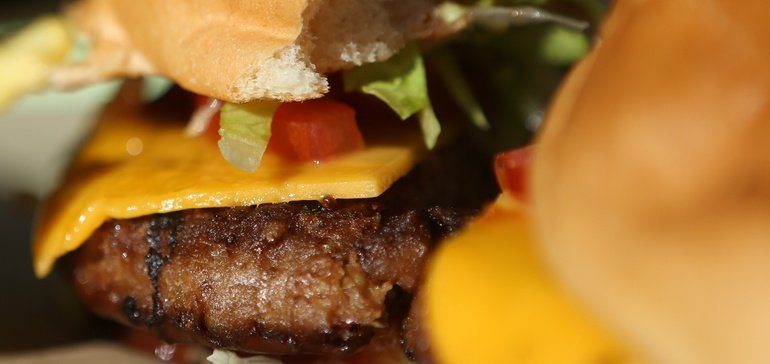Firmenich debuts tech for mimicking meat juiciness in plant-based products

Dive Brief:
-
Flavor company Firmenich has debuted a proprietary fat mimicking technology called Dynarome SR that is aimed at providing an authentic meat-eating experience for plant-based foods.
-
To create Dynarome SR, the Switzerland-based firm focused on juiciness, succulence, and fattiness, which are key sensory cues for meat. It uses combinations of plant fats in a culinary paste form to develop its fat replacement. As it melts during the cooking process, the fat transforms into a flavor delivery system providing a sustained release of aroma and taste throughout the eating experience, according to Firmenich.
- Plant-based food makers have struggled to create analogs that mimic the same taste and mouthfeel as animal-based meat — in particular, its juiciness. A number of companies and startups are working to crack the problem with plant-based or cultured fat ingredients.
Dive Insight:
Consumers may be keen on plant-based proteins but they are discerning when it comes to how closely they want their alternatives to mimic real meat. Roughly three-quarters of consumers say they expect plant-based alternatives to match the taste of meat, according to a white paper from Kerry.
Although a number of plants offer a high amount of protein, they fall short in the fat department. Fat is one of the key components of meat and helps provide the savory, umami characteristics — qualities Firmenich is targeting with Dynarome SR.
“Taking the example of a grilled burger patty, beef notes that generate while cooking and then mingle with the cooked fat melting in your mouth are key to an authentic burger experience,” said Mark Rubin, principal flavorist at Firmenich. “We wanted to recreate that same effect with a natural product that looks, cooks and smells like beef — but is vegan.”
With plant-based meat worth an estimated $1.4 billion in 2020, there is a serious market opportunity for companies that create promising fat replacement ingredients. The cultivated fat segment, which aims to replicate animal fat by growing it in the lab instead of creating a replacement from non-animal ingredients, is one of these. At least two-thirds of companies who make plant-based meat alternatives are open to using cultivated fat in their formulations if it improves the flavor profile, texture, or other attributes like clean label ingredients, according to a survey by cultivated fat producer Peace of Meat.
Cultivated fat may also help minimize the need for other ingredients like binding agents, flavors and other additives that are traditionally used to make plant-based meat alternatives, and can also add better-for-you attributes to a plant-based protein like omega-3s. This option faces a few hurdles, however. The biggest: Cultivated fat is still a relatively new technology that has yet to receive regulatory guidance in the United States.
By opting to make a fat replacement out of plant ingredients, Firmenich circumvents this issue. This may help it get Dynarome SR into manufacturer’s products sooner rather than later.
Firmenich has embraced a wide variety of technologies in its effort to better replicate the flavor of meat in plant-based alternatives. Last year, it partnered with Microsoft to use artificial intelligence to optimize flavor combinations to replicate a lightly grilled flavor in plant-based proteins. It also used the technology to hone in on some other characteristics that consumers are craving like clean label, organic, non-GMO and natural.
A key question for any fat replacement based on plant ingredients will be whether it can match up to cultivated animal fats once they receive regulatory approval and enter the market. But for now, providers of plant-based solutions have a good head start.
Source: fooddive.com

